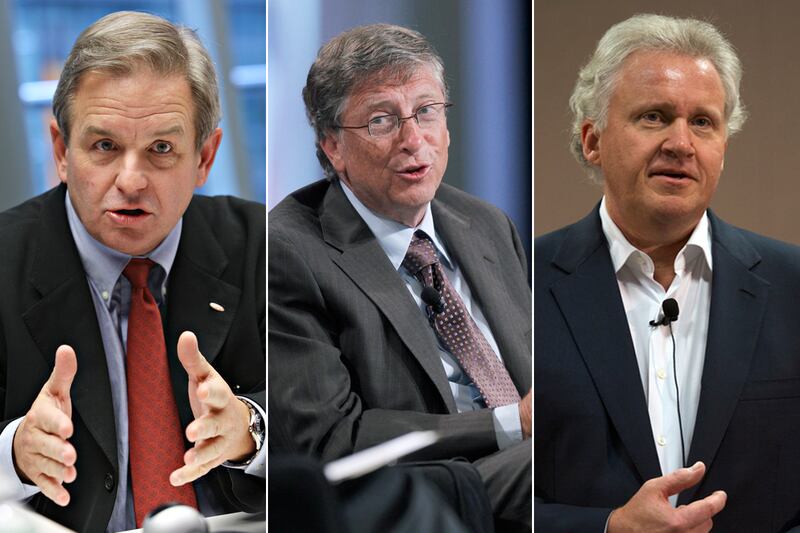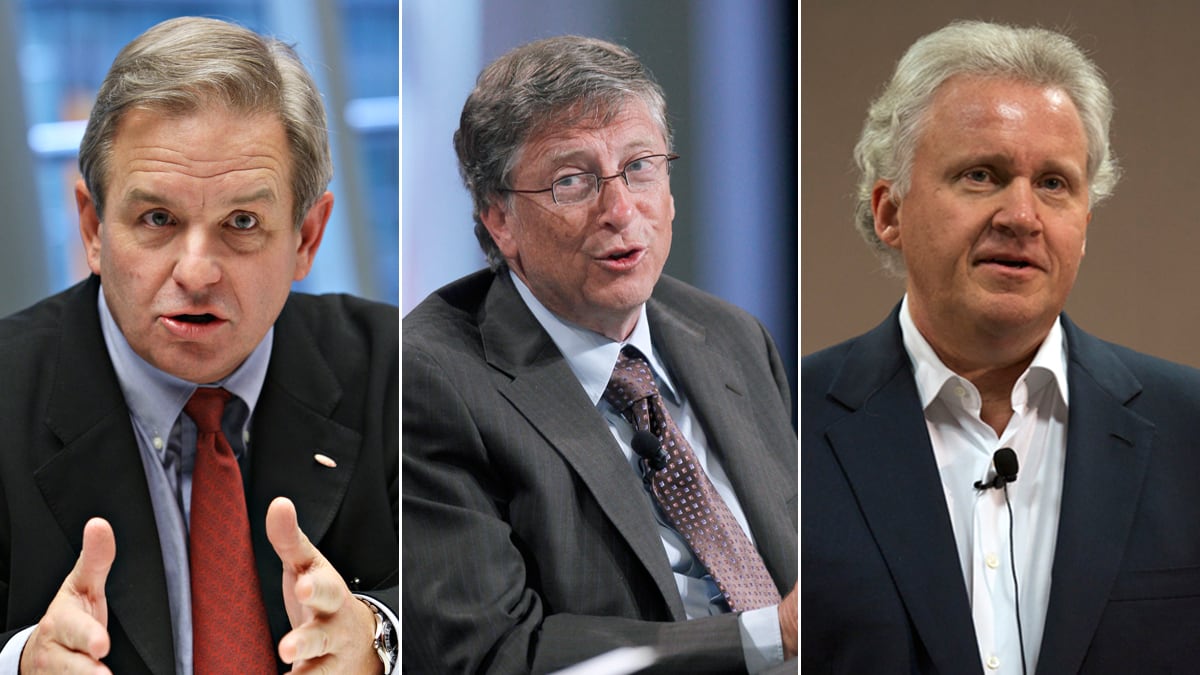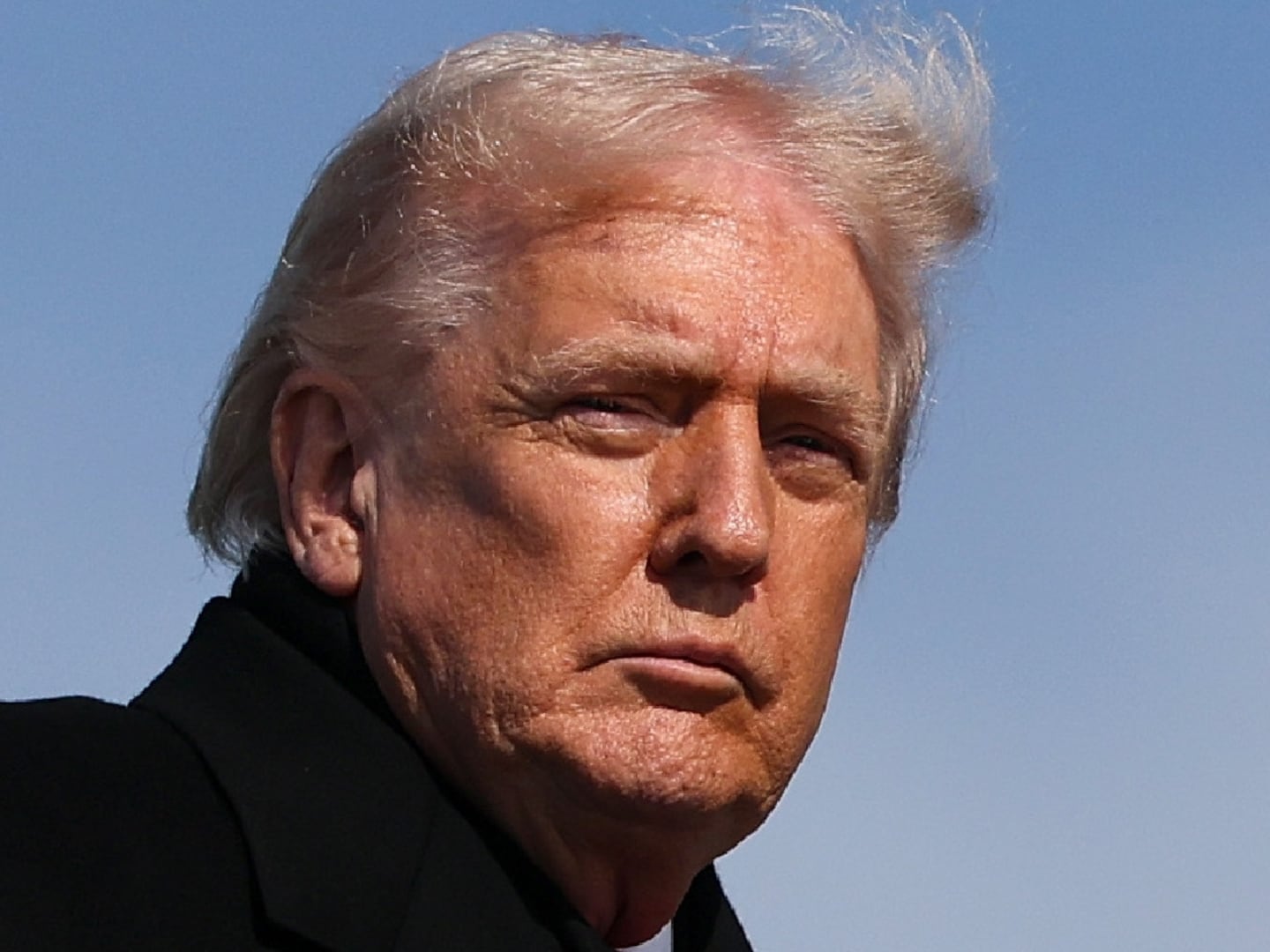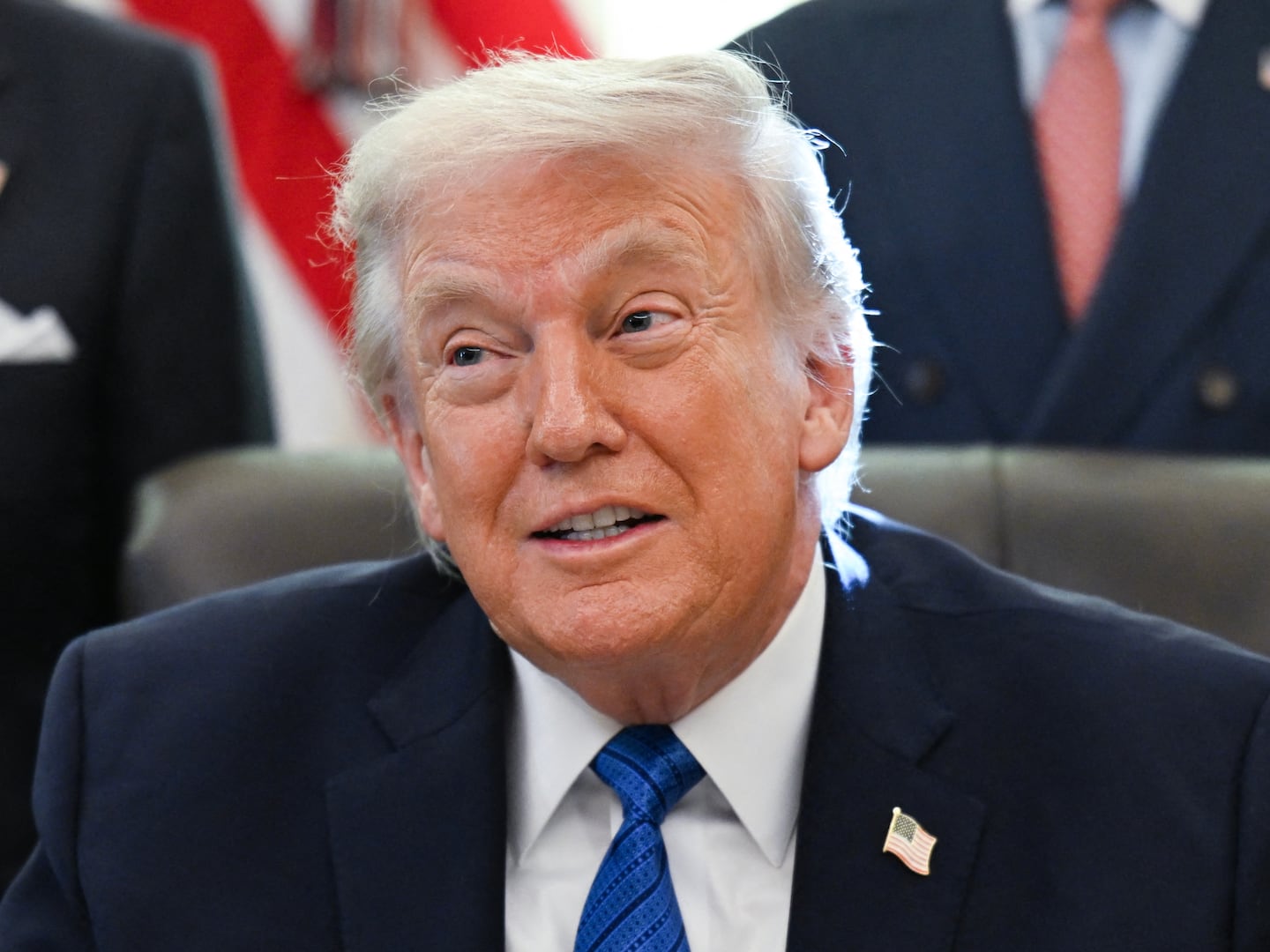Bill Gates and several of his closest friends—CEOs and top executives from Bank of America, Lockheed Martin, and Kleiner Perkins—are in Washington discussing their latest uphill battle.
Most of the executives are used to success. Yet sitting around a conference table a few blocks from the White House, they acknowledge their next pursuit is a bigger ask, and substantially longer term. In a town talking about tightening the government’s belt, the group is urging more government money to be spent on finding the next game-changing idea on energy. They say energy is the biggest economic frontier over the next decade as fossil fuels dwindle, prices fluctuate, and renewable energies become more viable.
Last year, Gates and the group pulled themselves together with a common goal of using their profiles as top business leaders to push Washington on ways to help them compete globally. It was a nebulous goal, but they decided on innovation, an area of historic U.S dominance that has, with the rise of industrializing countries like China, an uncertain future. A year later, they’ve produced a stark report, titled Catalyzing American Ingenuity, calling on Washington to take the lead on research innovation, just as lawmakers debate how slim the nation’s long-term budget landscape should be.
It’s a strange sight, America’s top business leaders arguing they’re ill equipped to innovate when Washington gives them substantial leeway, even lower tax obligations. But that’s sort of the point. With companies burdened by obligations to grow and create jobs in the short term, industry research doesn’t always make business sense. “Every economist will tell you that you cannot count on the private sector to come in and fill in that piece,” Gates told a group of journalists skimming the report at Washington’s Bipartisan Policy Center, which helped facilitate the study. “The idea is long-term research funded by the government.” His colleagues sit around nodding.

At the moment, three major arguments are usually made against industry innovation funded by taxpayers. One is that the government moves too slowly and can’t pivot toward new market trends or research advances. Another is that it’s simply too expensive, especially now. And the third is that corporations have the biggest incentive—the lure of sky-high profits—to find the next game-changing idea. When President Obama dismissively noted in his jobs speech Thursday to Congress that Republicans think the government should just get out of the way and let private companies do the work of moving the economy forward, Republicans awkwardly cut him off with applause and cheers.
Yet American business leaders are now arguing that U.S.companies don’t research enough because they simply can't. Demands of shareholders don’t reward long-term planning, especially in a sector like energy, with unpredictable price shifts and volatile geopolitics. The result, then, is that companies tend more toward slight advancements in order to box out a rival. But they shy away from massive shifts because of what’s known as the spillover effect, when a company can’t monetize all of the benefits of its idea and ends up helping competitors.
According to an industry study by the National Science Foundation, private firms spend a strikingly small amount of money—about 3.5 percent of revenues—on looking for the next big thing. Energy utility companies spend even less, in the realm of a 10th of a percent, on new technology research. Advocates of further research point to the Internet, the advent of GPS, or America’s highway system as examples of what the government can do that a private company simply wouldn’t. That’s because private markets don’t exist for some markets, like building a military or protecting the environment.
Spillover in government is common and can be mutually beneficial. Take, for example, gas turbine engines. The idea came from a project of the Defense Advanced Research Projects Agency (DARPA), a division of the Pentagon, back in the 1980s and 1990s. The original goal was to make military jets fly faster and farther. But the burgeoning wind-energy industry caught hold of the same technology. It’s unlikely that start-up wind developers would have pumped billions of dollars into a new generation of turbines, but the combined cycle gas turbine is now what powers America’s largest wind farms.
There is, in fact, a sizable union between defense and energy technology. Back in 1958, the Pentagon started DARPA to keep U.S. military technology ahead of other countries, especially Russia, which had just launched Sputnik. Researchers developed aerospace technologies to make aircraft more resilient, and even stealth. A prototype of an internal network, dubbed DARPA-NET, eventually became the foundation of the modern Internet.
Harnessing DARPA’s success, the Bush administration created an offshoot in 2007 devoted solely to energy. Labeled the Advanced Research Projects Agency-Energy (ARPA-E), the program got the bulk of its funding in the 2009 stimulus bill. Since then, the agency’s researchers have partnered with some companies to probe advances in battery storage, efficiency research, and even new energy technology, like nuclear fusion.
The program hasn’t discovered something on the magnitude of the next World Wide Web quite yet, but it vows to keep looking. “These are very risky programs, but you have to take some shots,” says Arun Majumdar, the head of the ARPA-E program, who used to lead the Lawrence Berkeley National Lab.
Late last month, Vice President Joe Biden visited Las Vegas to give a speech at the National Clean Energy Summit announcing a $100 million joint funding venture between the public and private sector to research semiconductors, biodiesel efficiency, and battery storage. Speaking to the roomful of engineers and start-up executives, Biden said it was America that invented the photovoltaic solar panel, and it was Uncle Sam who installed the first megawatt-size wind turbines. The implicit message was that America had fallen behind.
“China leads in installed wind capacity, while Germany leads in installed solar capacity,” he told the convention. Both countries have outspent the U.S. on clean-energy research projects—China by almost double. Those small disparities can get much bigger when advances enter the $5 trillion annual energy market.
The key problem, however, may be the null hypothesis—explaining what would be lost over the next decade if the U.S. turned its back on energy R&D. Hal Harvey, head of the ClimateWorks Foundation, points to Detroit as a case study in how poor research investment ceded battles over auto innovation to companies in Japan and Korea. The American auto industry is bouncing back, but only after being rescued by Washington, and now with a substantial disadvantage.
Yet the battle over energy may still be winnable. Last year, Bank of America chairman Chad Holliday visited Shanghai. He was overheard openly dismissing China’s research acumen at a dinner one evening until the vice mayor of the city, clearly peeved, invited him to tour one of the government’s research laboratories. When Holliday arrived at 7 a.m. the next morning, top scientists had been working around the clock. They had advanced machines and the place was buzzing with activity. “That’s the kind of thing we’re competing against,” said Holliday. “We need the same thing.”






